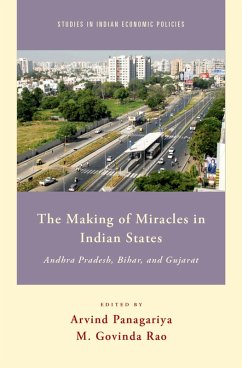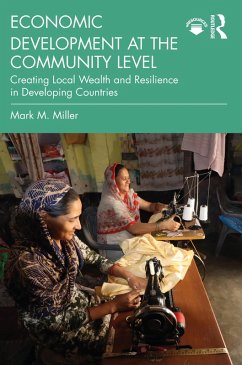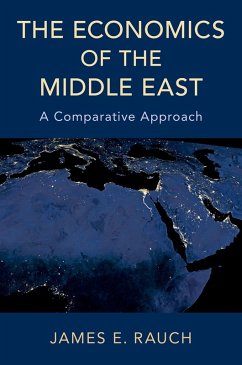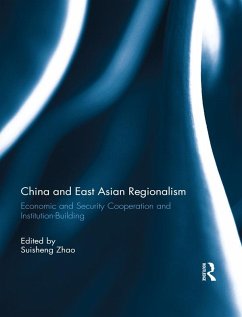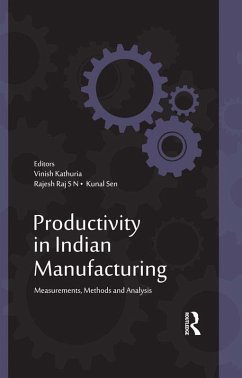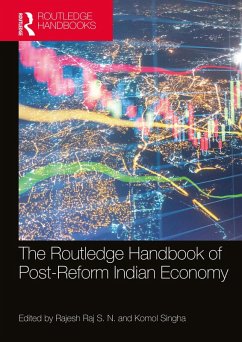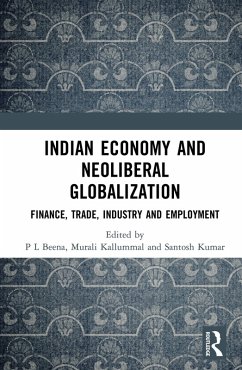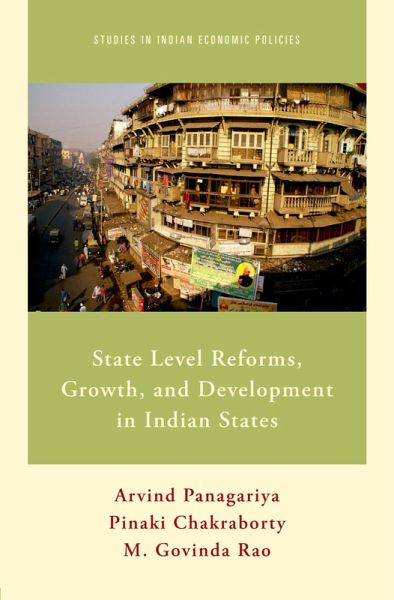
State Level Reforms, Growth, and Development in Indian States (eBook, PDF)
Versandkostenfrei!
Sofort per Download lieferbar
43,95 €
inkl. MwSt.
Weitere Ausgaben:

PAYBACK Punkte
22 °P sammeln!
Most discussions of India's recent economic growth focus on progress and policies at the national level. But with a population of 1.2 billion, several of the states in India are larger than many of the countries in the world. Therefore, a more complete understanding of India's ongoing experiment in economic reforms requires a study at the state level. State Level Reforms, Growth, and Development in Indian States provides the first-ever comprehensive analysis of growth and reforms in the highly diverse states of the country. The authors argue that when the national government loosened its contr...
Most discussions of India's recent economic growth focus on progress and policies at the national level. But with a population of 1.2 billion, several of the states in India are larger than many of the countries in the world. Therefore, a more complete understanding of India's ongoing experiment in economic reforms requires a study at the state level. State Level Reforms, Growth, and Development in Indian States provides the first-ever comprehensive analysis of growth and reforms in the highly diverse states of the country. The authors argue that when the national government loosened its controls on industry and services, state governments began shaping the fortunes of their citizens through state-level policy reforms, resulting in faster growth in every state over the last decade than any other decade in the post-independence era. In fact, some of the poorest states, notably Bihar and Odisha, have been growing the fastest. Professors Panagariya and Chakraborty and Dr. Rao refute the common assumptions that growth has not occurred or that poverty has not been reduced in all Indian states. The recent reforms have also led to improved access in every state to basic amenities such as permanent houses, electricity, water, and sanitation. These accomplishments notwithstanding, regional inequality on a per capita basis has grown as well. The authors analyze the economic transformation that has taken place in the largest eighteen states of India and suggest reforms in areas of agriculture, industry, services and urbanization that can further accelerate this transformation. They also provide a comprehensive analysis of education and health in the states.
Dieser Download kann aus rechtlichen Gründen nur mit Rechnungsadresse in A, B, BG, CY, CZ, D, DK, EW, E, FIN, F, GR, HR, H, IRL, I, LT, L, LR, M, NL, PL, P, R, S, SLO, SK ausgeliefert werden.




